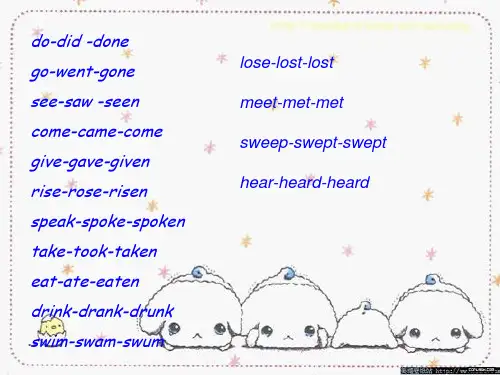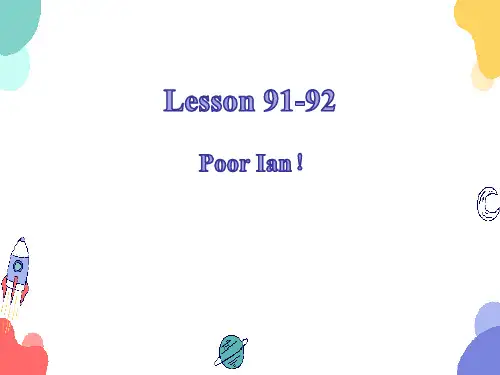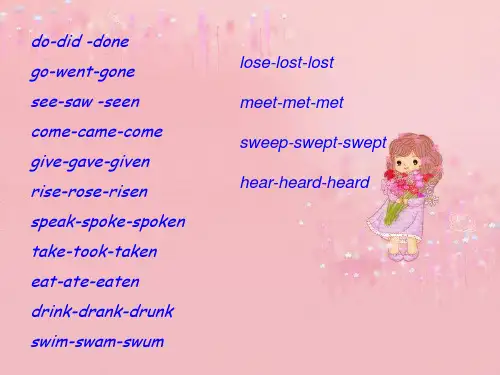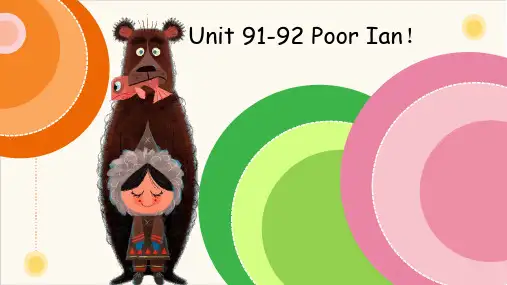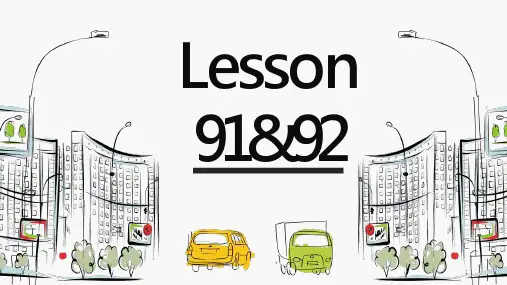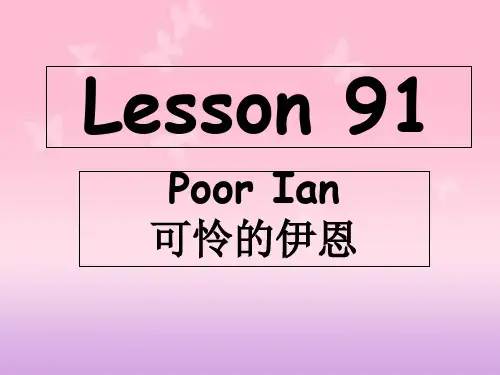• • • • • • •
-He didn’t want to leave this house. -No, he didn’t, but his wife did! 反意疑问句: -He didn’t go to school yesterday, did he? -No, he didn’t.(是的,他没去。) Yes, he did.(不,他去了。) 注意没有混搭形式:Yes, he didn’t. / No, he did.
• poor
• adj. ①可怜的 • The poor old woman had no one to talk to.
• 那个可怜的老人找不到人跟她说话。
• ②贫穷的 • a poor man
• 贫穷的人
• the poor
富裕的人
the rich
• We should help the poor.
★miss v. 想念,思念 ① v. 想念,惦念 • 我想你 • I missed you. ② v. 错过;未做到 • 他睡过了头,错过了他那班火车。 • He overslept and missed his train.
• ★person n.(强调个体,不分男女老少,有复数 persons) • The person in a hat is my father. ★people n.(强调集体,是集合名词) • How many people are there in your family? • person n. 人 He is a nice/good person. • 他是个好人。 • personaladj. 个人的,私人的
• • • • •
课文讲解
-Has he moved to his new house yet? -No, not yet. Move to 搬到… 我明天要搬到B区的办公室。 I’ll move to the office in zone B tomorrow. • Yet用于疑问句和否定句的句尾。 • No, he has not moved to his new house yet.
